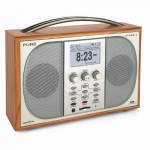I was talking to a colleague over a lugubrious coffee recently – it happens – and we came to the conclusion that broadcasting music can be a dangerous thing. You see, when programmes such as Radio 3 play music, there’s a dangerous assumption that what’s being broadcast is automatically good, simply because it is being played on the radio. Lazy listeners to Radio 3 and Classic FM can easily assume that what they are hearing must be of a suitable standard, otherwise it wouldn’t be aired.

The same danger lurks around the printed word: readers assume that, if something is typed, or printed, it Must Be So. Newspapers have an aura of omniscience as a result of this. Wikipedia seems to thrive on this assumption, and how many people have taken Wikipedia’s information as factually correct, when it often isn’t ?
I’ve heard some pretty terrible performers on the radio: soloists with otherwise eminent, reputable period-instrument ensembles, whose performing I wouldn’t even sit through if they turned up at the local community hall. There’s a sense that the performance is condoned by the broadcasting company in the act of putting the music on the air: as though the act of broadcasting confers some seal of approval on it.
As listeners, we need to be wary of accepting that performances we hear on the radio, or sometimes see on television, are acceptable (I hesitate to use the word ‘good’ here, as the judgement of one person may not be that of another: but we can all at least (I hope) distinguish between performers who are in tune, or engaging, and those that simply are not). We are often too passive as cultural consumers, reaching readily for newspaper reviews to tell us what concerts are ‘worth’ attending, what art exhibitions are ‘worth’ visiting, what films are ‘worth’ seeing.
It’s time we listened (and watched) more pro-actively; time we stopped believing in the benign, assumed sanctioning by radio and television of mediocre, even bad music-making, and started making cultural decisions for ourselves.
